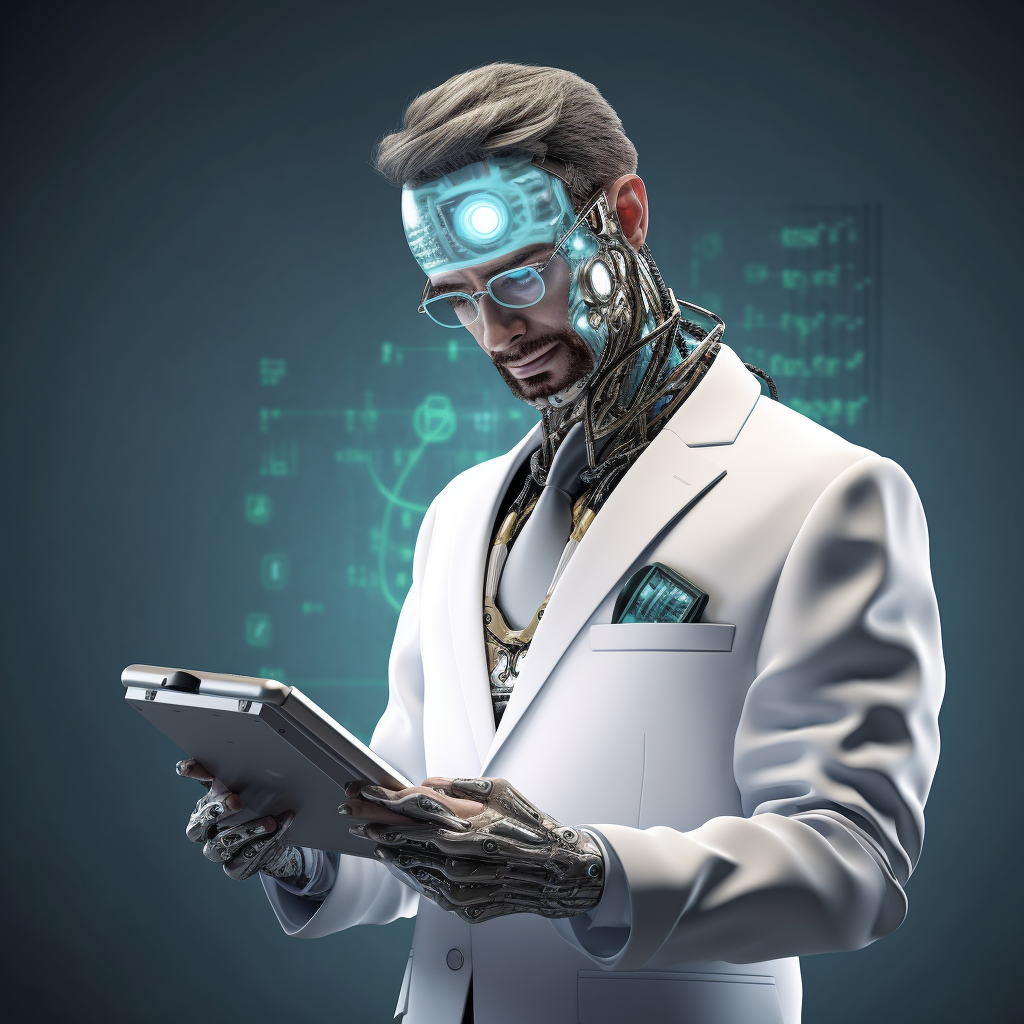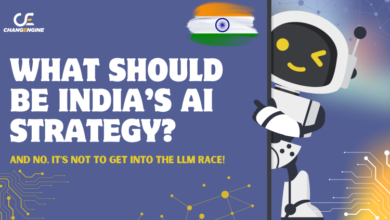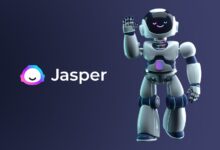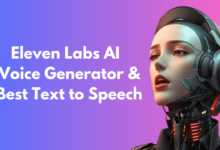Top 12 Benefits of Artificial Intelligence in Healthcare:
This is how AI is the changing the healthcare industry

Today, we will delve into the fascinating world of Artificial Intelligence (AI) in healthcare. Let us talk about how AI transforms the healthcare industry in 12 mind-boggling ways. So grab a cup of coffee, get comfortable, and let’s get started!
AI can treat patients remotely, which may be especially useful for those who are unable to travel to a medical facility. AI can lower healthcare costs, enhance clinical management effectiveness, and increase patient safety.
Top 12 Benefits of AI in Healthcare:
AI—you’ve heard the buzzword, right? It’s not just about robots and fancy gadgets anymore. AI is playing a pivotal role in modernizing healthcare. From diagnostics to surgeries, it’s like having a virtual doctor in your pocket.
Wondering how? Let’s break it down! AI is redefining how we process healthcare data, diagnose diseases, develop treatments, and even prevent them altogether. Here are the top 12 benefits of AI in healthcare.
- Enhanced Diagnostic Accuracy
- Personalized Treatment Plans
- Streamlined Drug Development
- Advanced Health Monitoring
- Improved Medical Imaging
- Robot-Assisted Surgery
- Reducing Healthcare Costs
- Enhancing Patient Engagement
- Virtual Health Assistants
- Predictive Analytics for Population Health
- Advanced Training for Healthcare Professionals
- Easing Administrative Burden
Enhanced Diagnostic Accuracy:
Say goodbye to the days of “Oops, we missed that!” AI is here to amp up diagnostic accuracy. With its sharp data-crunching skills, AI swiftly spots abnormalities and patterns, making sure nothing goes unnoticed. It’s like having a detective with a magnifying glass, but way cooler!
Personalized Treatment Plans:
One-size-fits-all? Nah, AI has no time for that. It’s all about tailor-made treatment plans now. AI studies your medical history and quirks to whip up a treatment plan that’s as unique as your fingerprint. It’s like having your very own healthcare stylist!
Streamlined Drug Development:
Drug development is like climbing Mount Everest—long and treacherous. But guess what? AI is the sherpa you need! It can analyze data at lightning speed, cutting down the time it takes to develop life-saving drugs. Patients, rejoice!
Advanced Health Monitoring:
Welcome to the future, where wearable gadgets don’t just count steps but keep an eye on your health too. With AI-powered wearables, you get real-time insights into your health right on your wrist. It’s like having a mini check-up without setting foot in a doctor’s office!
Improved Medical Imaging:
AI in medical imaging is like seeing in 4K Ultra HD! It’s making images crisper, clearer, and more detailed, helping doctors detect issues that were once easy to miss. X-rays and MRIs just leveled up!
Robot-Assisted Surgery:
Robots in the Operating Room? Yes, please! With robot-assisted surgery, procedures are more precise, less invasive, and often have quicker recovery times. It’s like having a surgeon with superpowers!
Reducing Healthcare Costs:
Let’s talk money. AI is slashing the dollars and cents spent on healthcare by making processes faster and more efficient. It’s like finding a healthcare coupon that never expires!
Enhancing Patient Engagement:
AI is turning patients into healthcare ninjas. With AI-powered apps and tools, patients can track their health, book appointments, and get reminders. It’s like having a personal health assistant without schedule conflicts!
Virtual Health Assistants:
Speaking of assistants, Virtual Health Assistants (VHAs) are the real MVPs. They answer questions, schedule appointments, and even give medication reminders. It’s like Siri or Alexa but with a medical degree!
Predictive Analytics for Population Health:
Want to predict the future? AI is here to help! With predictive analytics, AI helps in forecasting disease outbreaks and managing population health. It’s like having a crystal ball but with actual data!
Advanced Training for Healthcare Professionals:
AI is like a personal tutor for healthcare professionals. With VR and advanced simulations, doctors can practice surgeries and diagnose virtual patients. Talk about leveling up your skills!
Easing Administrative Burden:
Last but not least, AI is cutting the red tape in healthcare administration. It automates paperwork, making sure healthcare professionals spend more time with patients and less time pushing pencils.

FAQs:
Is AI replacing doctors?
AI is not replacing doctors, but rather assisting them in various ways. AI technologies in healthcare are designed to enhance the capabilities of doctors by providing them with better diagnostic tools, data analysis, and treatment options. For example, AI can analyze medical images to identify patterns that humans might miss, but doctors make the final decision.
Is AI in healthcare safe?
AI in healthcare can be safe, but like any technology, it comes with challenges and risks. The accuracy and safety of AI systems depend on the quality of data they are trained on, and how they are implemented. The integration of AI with human oversight is crucial for maximizing safety and efficacy.
How does AI impact patient privacy?
AI impacts patient privacy in both positive and negative ways. On the positive side, AI systems can enhance data security by detecting and countering breaches and unauthorized access to patient records. However, on the negative side, the extensive data required to train AI systems can sometimes lead to privacy concerns.
Can AI make mistakes in diagnosis?
Yes, AI can make mistakes in diagnosis. AI systems are dependent on the data they are trained on, and if this data is incomplete, biased, or of poor quality, the AI might produce incorrect or unreliable results.
Will AI change the future of healthcare?
AI is already changing the landscape of healthcare and will continue to do so in the future. With its ability to analyze large datasets quickly, AI is revolutionizing diagnostics, treatment personalization, drug development, and more. Additionally, wearable devices and telemedicine, powered by AI, are making healthcare more accessible. AI is expected to make healthcare more efficient, cost-effective, and patient-centric.
Wrapping Up:
So there you have it – 12 astonishing ways AI is changing the game in healthcare. From sharper diagnostics to personalized treatments, it’s safe to say that the future of healthcare is brighter and more intelligent thanks to AI. Now, don’t you feel like living in a sci-fi movie? Just minus the aliens!
Read More: Ethical Implications of AI






